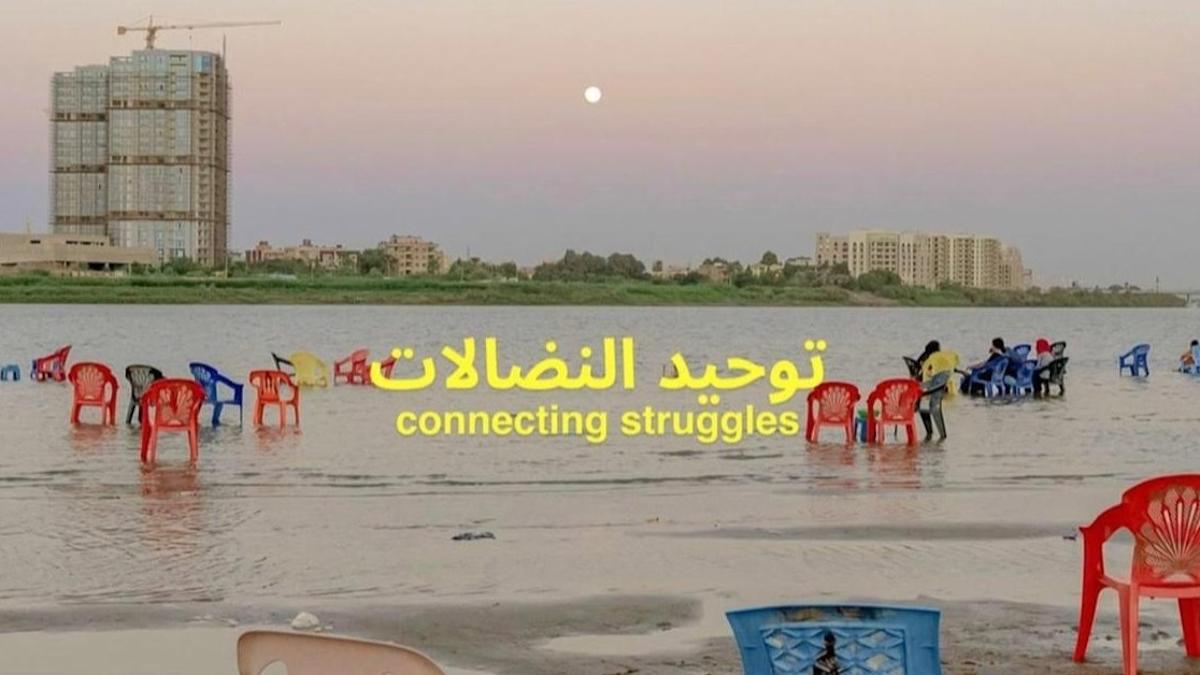
moe. and Acidfinky to host a fundraiser for Sudan and Palestine
Come down next Wednesday, December 10th.
Loading
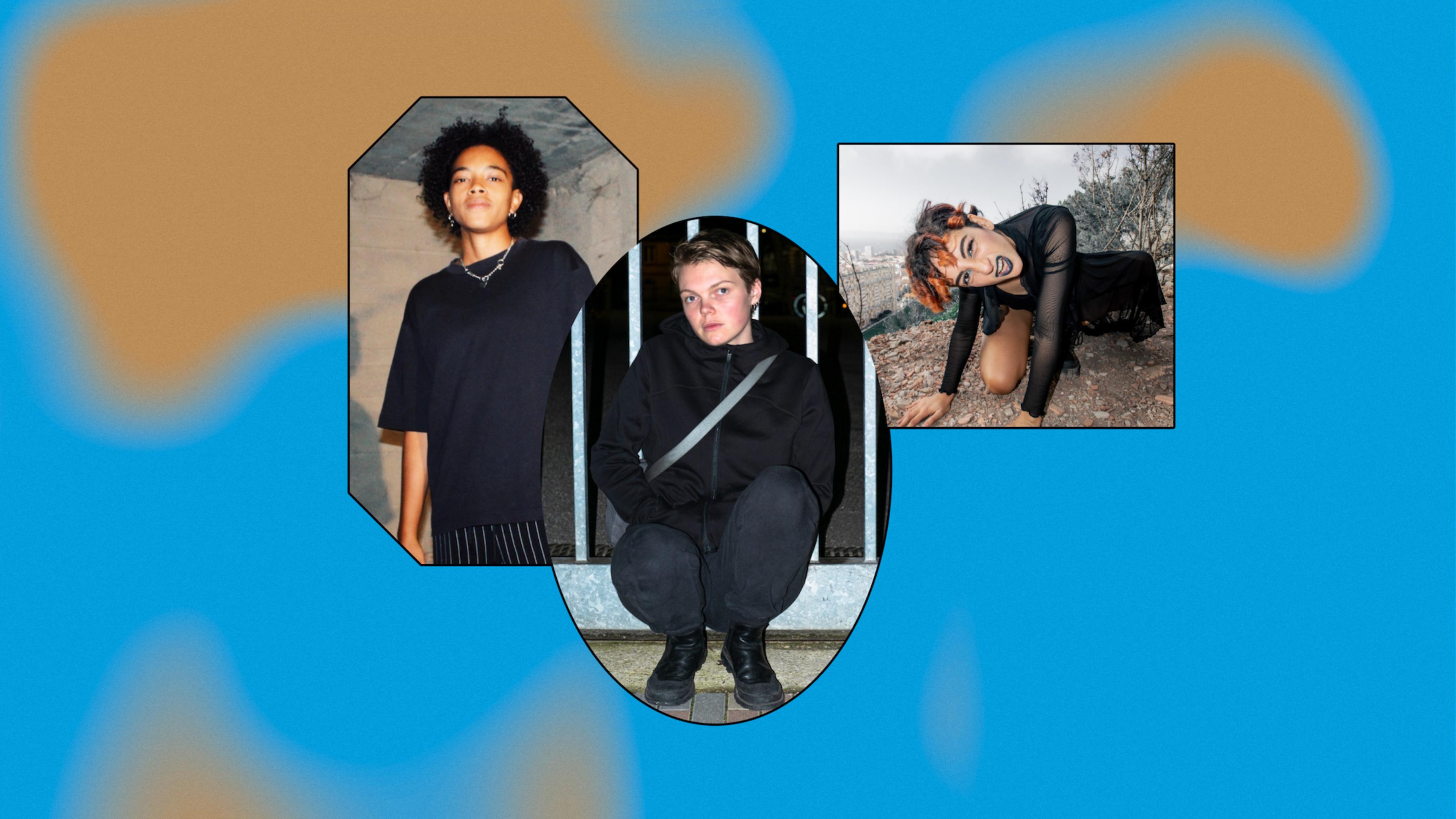
We caught up with the artists at Le Bon Air festival.
By Héloïse Leclercq
A few weeks ago, we met Beatrice M, SABB, and Vanda Forte at La Friche La Belle de Mai.
Marseille's multi-faced community explores new ways to delve into music, fostering artistic exploration and providing a creative platform for emerging artists. Locals Vanda Forte and SABB blend strength and experimentation in their fusion of Middle Eastern and North African sounds with electronic music, while Beatrice M is pushing the boundaries of bass music creation and addressing the need for inclusion through their music projects.
Spanning live music to performance at, and set against industrial backdrops, Le Bon Air showcases an extensive array of artistic expressions and musical genres, ranging from UK Bass to Nu-Jazz.
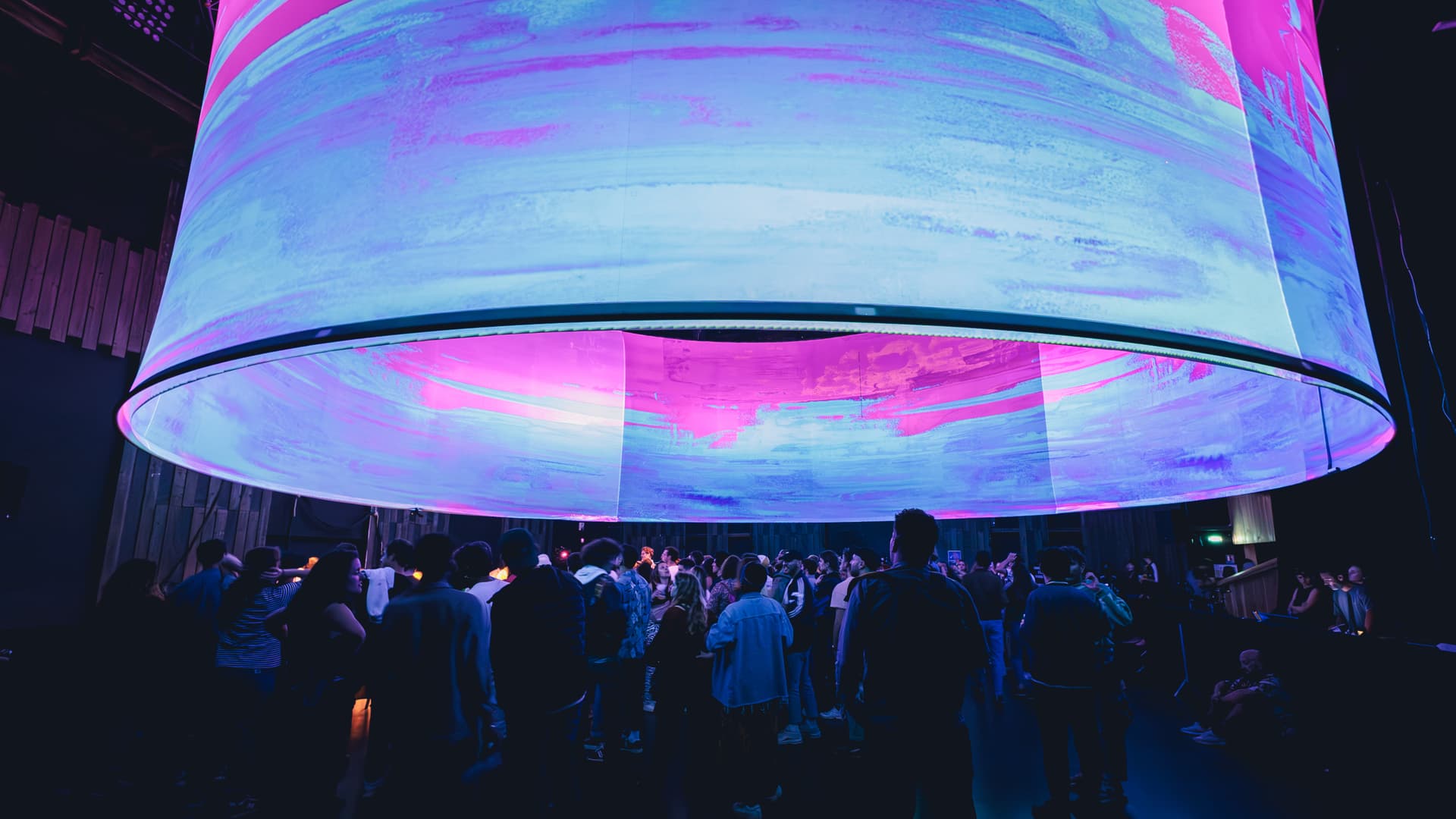
Singer and multi-instrumentalist, Vanda Forte explores aesthetics blending strength and vandalism, infusing their production process and DJ sets with experimental approaches. Vanda Forte curates Vagina Rocks, a radio show and event series that promotes queer and feminist art. Along with Sinclair Ringenbach, they creates as part of the duo Caïn و Muchi, which crafts a mesmerizing fusion of Middle Eastern and North African sounds with electronic music. Their lyrics explore themes of identity, belonging, racism, and societal challenges, highlighting the perspective of living in a non-binary woman's body.
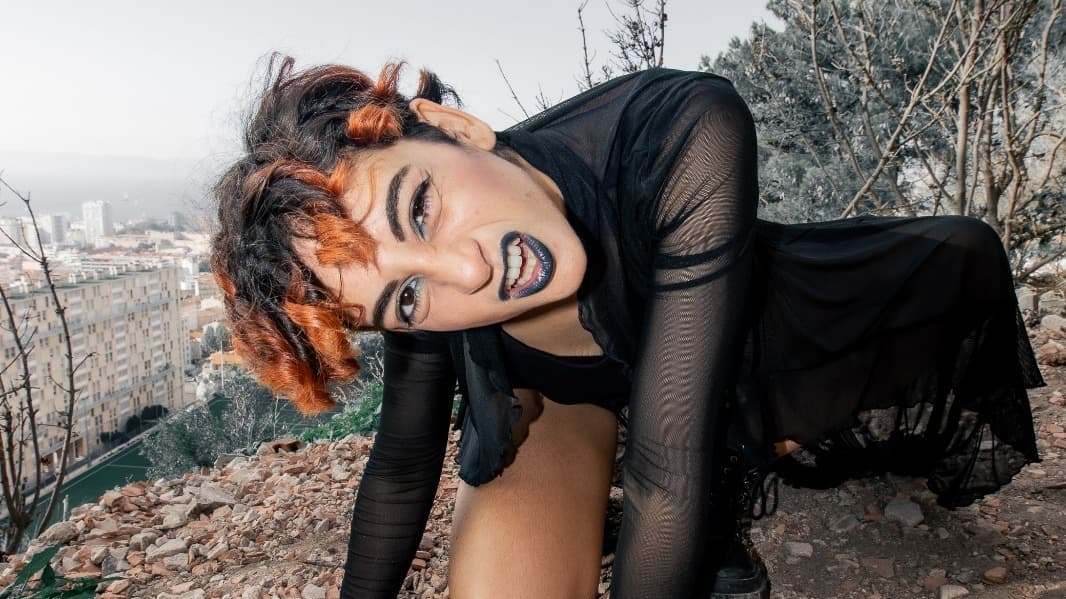
You performed last night as a DJ, and tonight you're doing a live set for your project Caïn و Muchi at the Le Bon Air festival. How does it feel to switch from one to the other?
Yesterday I was in drag to dissociate myself physically, which allowed me to step out of myself and adopt a character. Musically, I'm able to switch because the two styles are so different. I enjoy telling stories that span across several genres and experimenting. It's a performance that unfolds in the moment, so it's different every time.
You began your musical career in Morocco. Do you feel that this heritage strongly influences your artistic identity and the music you create today?
I draw a lot of influence from the Arab world because it's what I know best. I've been particularly inspired by rap from the SWANA (South West Asia and North Africa) region, which I became more familiar with after leaving my country. When I was in Morocco, I was more fascinated by bass music. Interestingly, upon leaving my culture, I found myself integrating it even more into my music.
Your duo project Caïn و Muchi delves into themes of identity and belonging. How do these themes manifest in your music?
It's a textual endeavor; through the lyrics I craft, I narrate stories—my own and those around me. I delve into my origins, my journey to the present. I articulate my transition as a non-binary individual, discussing topics like mental health, depression, bipolarity, and mood and attention disorders. My lyrics often explore the cyclical nature of my mind, and they can be interpreted in myriad ways.
I used to hesitate sharing my innermost thoughts with strangers, but now I realize that my lyrics resonate with others, helping them find solace in their own experiences. It's crucial to me that people can relate to my words and feel less isolated. Although I sing in Arabic, translations of my lyrics are consistently made available online upon release.
Performance is about conveying the emotions embedded in my voice—a way to reflect on the person I was when I wrote those lyrics. I witness the connection forming in people's eyes when this exchange occurs.
How do you navigate between experimental music, rap, and club music?
For Caïn و Muchi, as two creative minds, our collaboration always results in something new. Personally, I don't necessarily see distinct boundaries between these styles, which allows me to blend them seamlessly. Having been exposed to various genres, I see myself as a conduit for sharing the diverse influences I've encountered.
You're one of the leading figures in the Marseille music scene. Could you elaborate on what fosters such a tight-knit community?
There's a strong sense of mutual support among collectives in Marseille; we're highly cohesive and supportive of one another. However, when it comes to institutional structures, it's a bit more complicated. There's not enough funding allocated to the cultural sector, but despite this challenge, we contribute a lot to each other on smaller scales. This sense of solidarity is incredibly important to me.
As an artist, how do you engage with social, decolonial, and political movements?
In Caïn و Muchi, I delve beyond personal narrative to explore everyday realities, particularly in conflict zones worldwide, with a focus on the Arab world and the South West Asia and North Africa region. My identity is inherently politicized; discussing my transition, for instance, is inherently political. Through my lyrics, I articulate the daily struggles of Syrian and Palestinian individuals. What may be deemed 'political' is, in truth, the lived reality for many globally.
Additionally, the Vagina Rocks project serves as a collective for queer and racialized individuals, actively contributing to decolonial movements. The initiative aims to empower others by offering workshops on stage presence and other skills, particularly to those who lack accessible learning opportunities.
Paris-based multi-disciplinary artist Beatrice M explores a multiverse of musical selections with a focus on bass music. Producer and DJ, they are involved in a multitude of projects, collaborations, and live acts, they moved from illustration to filmed performances, driven by a passion for experimental sounds. Their label, BAIT, founded in 2023, aims to foster inclusion within the dubstep scene, presenting a blend of dubwise hybrids and visually stunning artworks.

You've just played at the Friche La Belle de Mai for Le Bon Air. How do you feel after this set?
I did a full vinyl set, which I haven't done much of, and it's the biggest stage I've ever played on. Even if you feel that bass isn't getting through yet, especially dubstep that's a bit minimal, the audience is paying more and more attention. I'm so happy and proud to have played there.
How do you feel about Marseille's electronic music scene?
I've already organized some events for Meta which I like for its eclecticism and commitment to the underground scene. They host diverse acts and foster a great atmosphere. The same can be said for Le Bon Air's programming; they actively involve the local scene and have successfully cultivated a unique identity that mirrors the city's vibe.
You performed your first live show at Nuits Sonores last week. How did you feel about it?
It was an ideal setting for my debut live performance. I encountered a technical glitch; the sound cut out and Ableton crashed for a few minutes. However, the audience's support was overwhelming, which kept me calm and composed. I even took the opportunity to address the issue with the audience using a microphone. Initially, I thought the experience might deter me from future live performances, but it had the opposite effect. It fuelled my determination to improve and continue performing.
You run your own label, BAIT, which addresses the lack of representation in the 140 BPM scene. Can you elaborate on what the 140 BPM scene entails?
The 140 BPM scene revolves around dubstep culture, characterized by an appreciation for half-time sounds. It's a slower and minimalistic genre, which is what I aim to reflect in my label, while also drawing inspiration from the minimal techno scene. I strive to find a balance between the two.
How do you intend to diversify representation in the realm of bass music?
I actively seek out individuals who aren't cis men and have some background in music production, offering them opportunities to release projects on my label. Even if their projects are still in the demo stage, we engage in discussions and exchange ideas to nurture their creative process. It's about dedicating my time to encourage gender minorities to participate. For instance, I recently collaborated with Formella, a Berlin-based artist, discussing and ultimately releasing her project on the label. Do you feel pressured to release new projects and do gigs?
For example, I wasn't initially inclined to play on vinyl here at Le Bon Air, especially after my first live performance last week. However, I felt a desire to push myself further and embrace new challenges because I seek stimulation. Nonetheless, I recognize the importance of finding balance, so for now, I'm focusing on various projects while also taking time to relax with some tiger balm!
You create all the illustrations to announce your events, EPs, and albums, and you've also worked on other artistic projects like filmed performances. Has studying art influenced your musical and artistic practice?
Although I didn't fully resonate with my art studies, they have ultimately enriched my musical career by providing a retrospective perspective. I examine how my work is structured and the symbolism it conveys, which inspires me to create new, authentic, and deeply personal projects.
Which artists have inspired you? CCL, who is also non-binary, stands out for their appreciation of dubstep, vinyl, and the fusion of genres, along with their affinity for minimalism, which isn't always common. I admire their values and mindset. Additionally, there's EMA, who performs in Ireland and runs the Woozy label, and Kia in Australia with Animalia.
SABB is a 25-year-old DJ who explores Afro-diasporic styles, trancey techno, bass music, break-beat and dark disco. A regular at free parties and Marseille's clubs, music is for her a long journey that connects bodies, souls and queer culture. She recently released her first EP 'RESET' blending guitar, drums, and piano in an eclectic electronic universe.
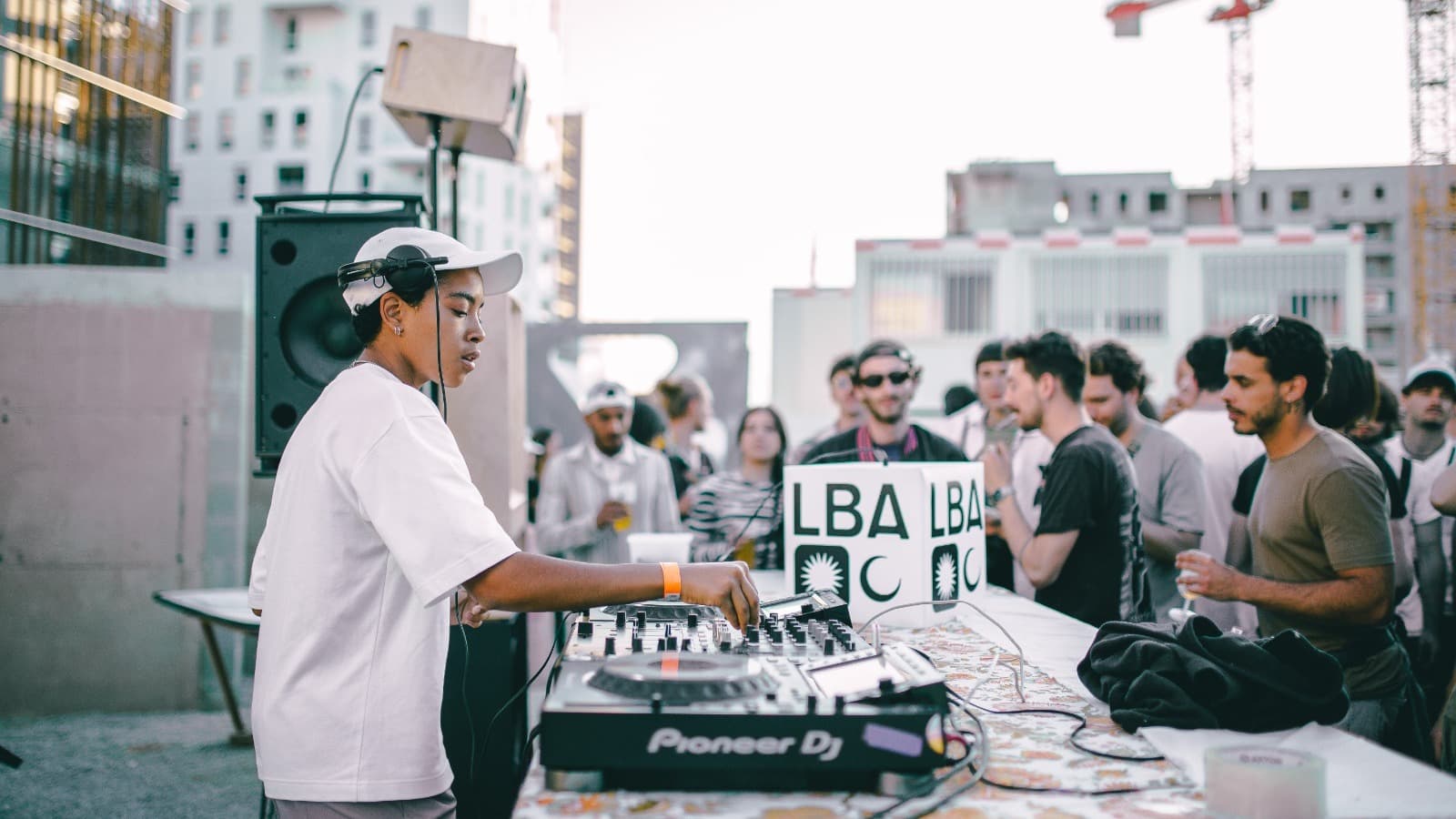
What are your impressions of the local electronic music scene?
The local electronic music scene is fascinating. There's a palpable sense of warmth, support and solidarity, fostering connections that enrich the musical culture. It's a scene characterized by hybridity and diversity, reflecting a vibrant mix of influences.
How long have you been producing tracks?
I've been involved in music since I was very young, playing guitar, piano, and drums. Over time, I transitioned to electronic music, incorporating samples and rhythms that I create myself. I've been producing for about 5 years now, but I'm quite meticulous in my work. I'm always striving to adjust and improve, which sometimes slows down the release of my projects. However, I'm learning to take the plunge, recognizing the confidence needed to express oneself through music.
You're currently working on a live set for the coming months. Can you describe your process?
My process typically starts from an intimate space where I reflect on my influences. There's always an echo of my heritage, but I don't feel compelled to discard everything I've been inspired by. Instead, I aim to blend diverse sounds, rhythms, and melodies. There's a significant amount of technical consideration involved as well.
Do you feel pressure in your artistic journey?
Maintaining discipline in my work is essential. I devote my energy to music alongside my 35-hour workweek as a nurse. Balancing both professions requires careful management of my time and energy, especially when taking on weekend gigs. It's a blend of human and social work, which I find rewarding. Both professions converge in a way, as they both involve giving my all for others. Ideally, I'd like to transition to intermittent work to dedicate more time to my music and take the next step in my career.
In 2021, you participated in Move UR Gambettes aimed at promoting FLINTA* individuals and minorities in navigating the music industry. Could you share more about the workshops you attended?
The program consisted of various workshops covering different topics, with speakers providing insights and guidance on professionalizing and promoting artists from gender minorities in the music scene. It was an enriching experience, fostering connections and support among participants. This collective effort pushed us to our limits, sharing our concerns and creating a sense of unity. It instilled in us a desire to progress further and a realization that we're not alone in our journey. Additionally, I participated in other programs over the following two years, including those organized by Sound Sisters.
How do you view the role of artists in giving voice to marginalized communities?
I believe artists have a responsibility to remain conscious of their work. It's essential to uphold solidarity and approach creativity in a committed and political manner. As artists, we tell stories—stories that we absorb and pass on through music. We can't ignore past and present events, but we can reinterpret historical narratives, making them relevant to our own experiences and the communities we represent.

Come down next Wednesday, December 10th.

This week: Gaza Biennale, embodiment workshops, listening sessions
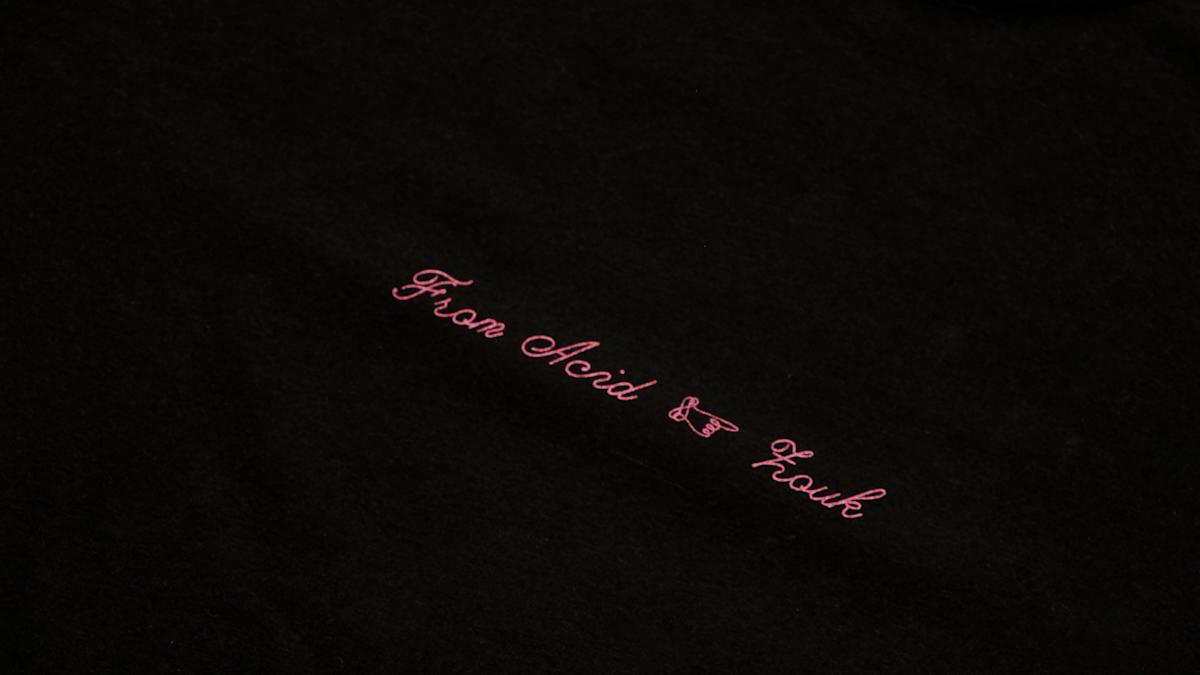
Out now, featuring every genre we've ever had on the radio.